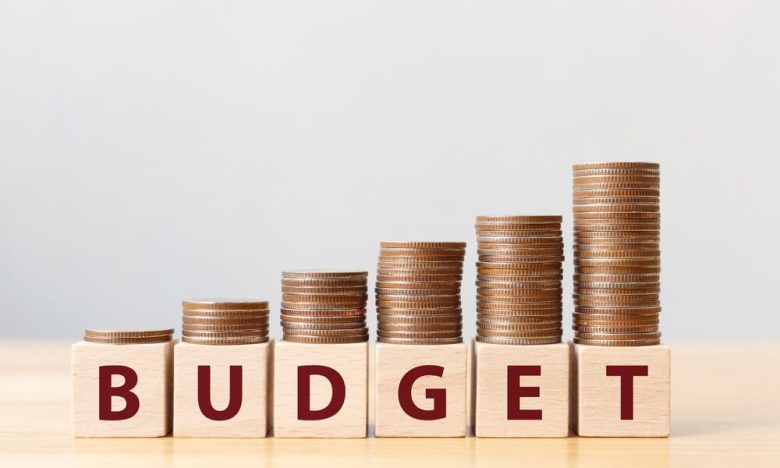Many people overlook the importance of a budget when managing their personal finances. A budget is fundamentally a plan that outlines how you’ll spend and allocate money each month. A budget gives you a clear idea of what your income is, how much money you spend, and what’s left for other priorities. A budget will help you to keep track of your finances. Without one, money can disappear without much thought. You may find yourself in debt or unable to save for the future. By developing and following a budget, you can take charge of your money.
Debt and Savings as Competing Priorities
Paying off debt and saving cash are two of the most difficult challenges to managing your personal finances. Savings are for future goals, like retirement or an emergency fund. Debt is a commitment that needs to be met. Balance is key, as putting all your money into debt could leave you without a safety net. On the other hand, focusing on saving can trap you in a vicious cycle of high interest payments. Budgets allow you to balance both sides and determine how much money should go towards debt repayment and how much to save.
Create Financial Awareness through a Budget
Budgeting increases your awareness of financial matters. Most people are unaware of how much money they spend on everyday, small items. These expenses can add up. You can see patterns in your spending and income when you track them. This awareness is crucial for balancing savings and debt because it allows you to identify unnecessary expenditures that could be used instead to pay down high-interest loans or boost your emergency fund. It is difficult to achieve either goal without this clarity.
How a Budget can Help Prioritize Debt Repayment
Interest is often charged on debt, so the longer it takes to pay it off, the more you will be charged. Budgets help you to prioritize debt repayment by letting you know how much money you have available each month. You might, for example, decide to reduce your spending on dining or entertainment to pay down a debt card. This disciplined approach will reduce the interest rate you pay over time and bring you closer to financial independence. Budgeting helps to ensure that repayment of debt is not random and inconsistent but a focused effort.
Budgeting for Savings
Savings are also important, as they give you stability and help prepare for unplanned expenses. Budgets allow you to consistently set aside a portion (even if it’s a small amount) of your income. You will develop the habit to save money before you spend it on other things if you treat savings as a regular budget expense. This helps you build an emergency fund for unexpected expenses like medical bills or car repairs. Any unexpected expense can push you further into debt and reverse the progress you’ve made on repayment.
How to Balance Short-term and Long-term Goals
Budgets that are well designed do not only focus on the current month but also take into account both short-term and long-term goals. Long-term objectives may include saving for retirement or buying a house. Short-term plans include paying off credit card debt and planning a vacation. Balancing debt and saving requires careful planning to ensure that current needs are met while preserving future security. Budgets help you achieve multiple goals without feeling overwhelmed by breaking down big goals into smaller and more manageable amounts.
Reduce Financial Stress by Creating a Budget
Budgeting brOften overlooked, budgeting brings peace of mind.n provide structure and clarity in a world of uncertainty and stress. You feel more in charge when you know how much money you have coming in and going out and how much you are saving and paying off debt. This reduces the worry of whether you’ll have enough money for emergencies or bills and creates confidence in your ability to achieve financial stability.
Flexibility in Budgeting and Budget Adjustments
Budgets are not rigid. They can be adapted to your changing situation. The unpredictable nature of life can cause expenses to rise or incomes to fluctuate. Your budget will allow you to make adjustments as needed, without losing sight of your goals. If you get a raise, for example, you may decide to increase the amount you pay towards debt or your savings. You can reduce a category temporarily if an unexpected expense occurs while still keeping in mind your financial priorities. Flexibility is the key to staying on course for the long term.
Conclusion
Budgets are essential for balancing savings and debt because they give you structure, clarity, and control of your finances. You can see how your money is spent, set priorities for debt repayment, and save consistently. The benefits of a budget are indisputable, even if it requires discipline and some adjustments along the way. Budgets help you to reduce financial stress and build better habits. They also create a more stable and secure financial future. Budgeting will help you achieve financial freedom and success in the long term.
FAQs
1. Why is budgeting so important to essential and savings?
Budgeting allows you to clearly see what your income is and how much money you spend. This makes it easier for both debt repayment and saving without neglecting one.
2. How can I pay off my debt and save money?
Yes, you can. Savings of any size are essential to building an emergency fund. This will prevent you from having to rely on debt in the future.
3. What percentage of my budget should I spend on debt and what percentage on savings?
It depends on the situation. Prioritizing high-interest debt is usually the best option, but you should also save a small amount for emergencies.
4. What happens if I have unexpected expenses or my income changes?
Budgets are flexible. Budgets can be adjusted to fit your current situation. You may temporarily reduce one category while remaining committed to your goals.
5. Does budgeting reduce financial stress?
It gives you control and clarity. Understanding how your money is being managed can reduce uncertainty and give you confidence about your financial future.




